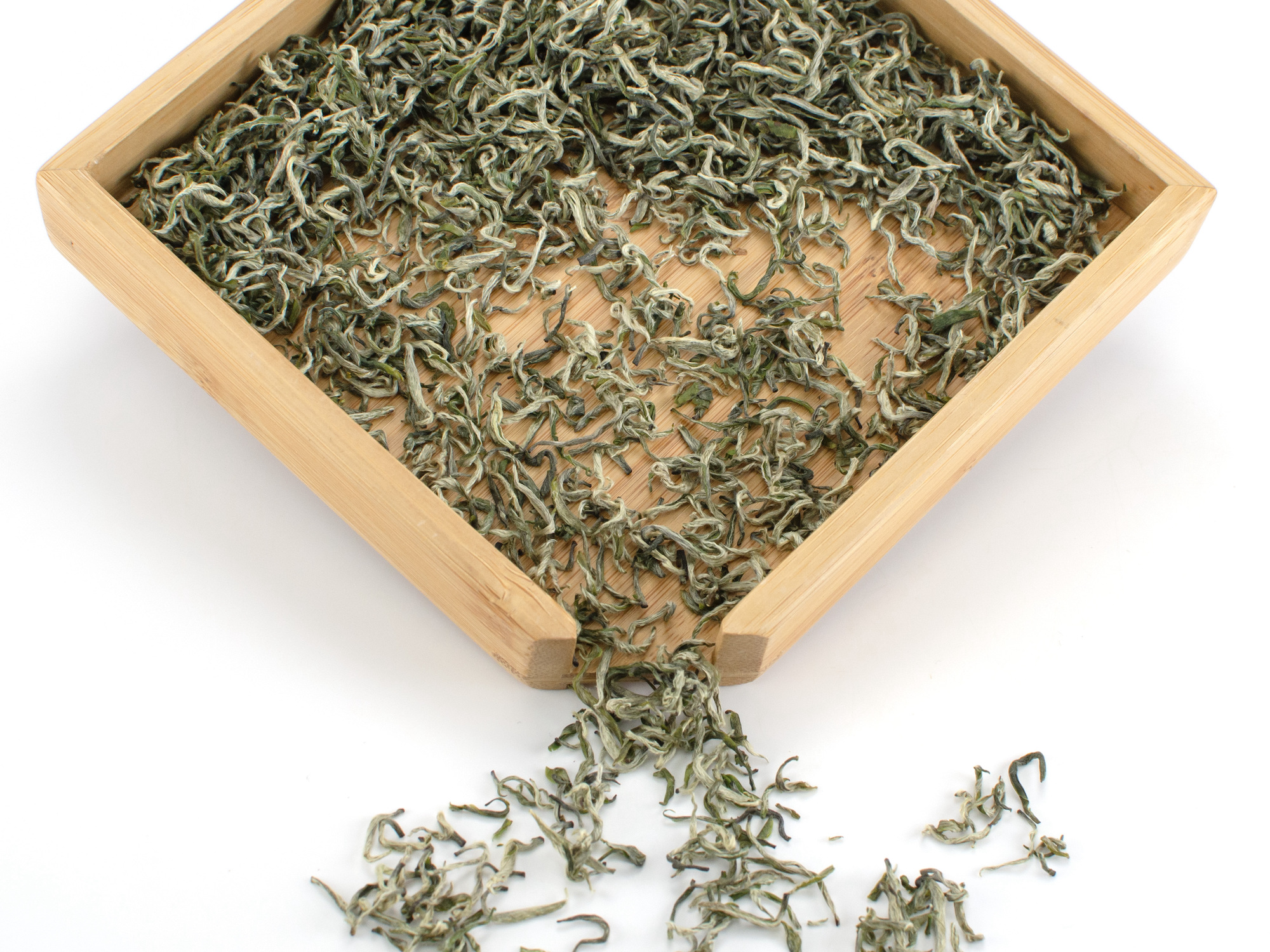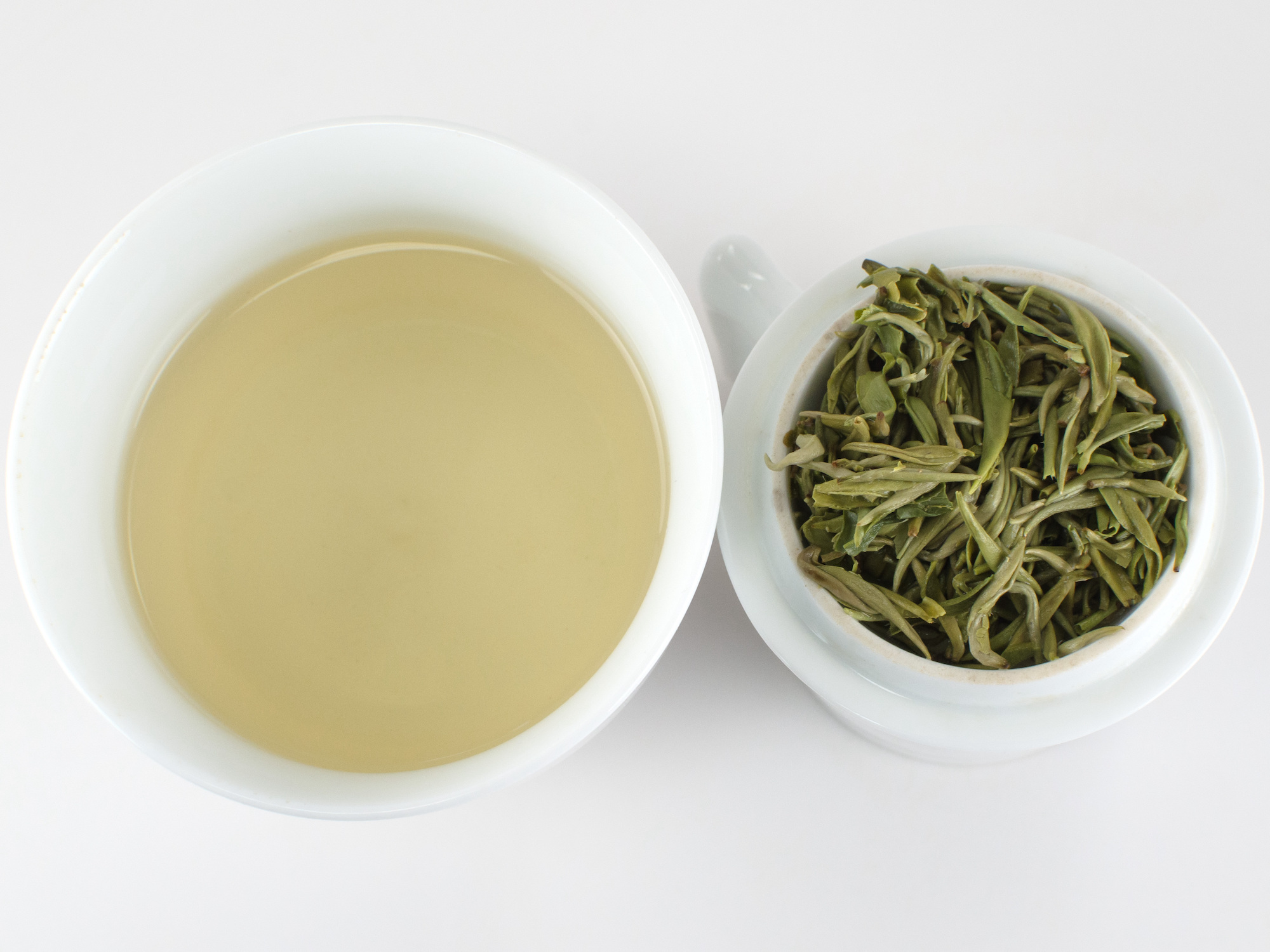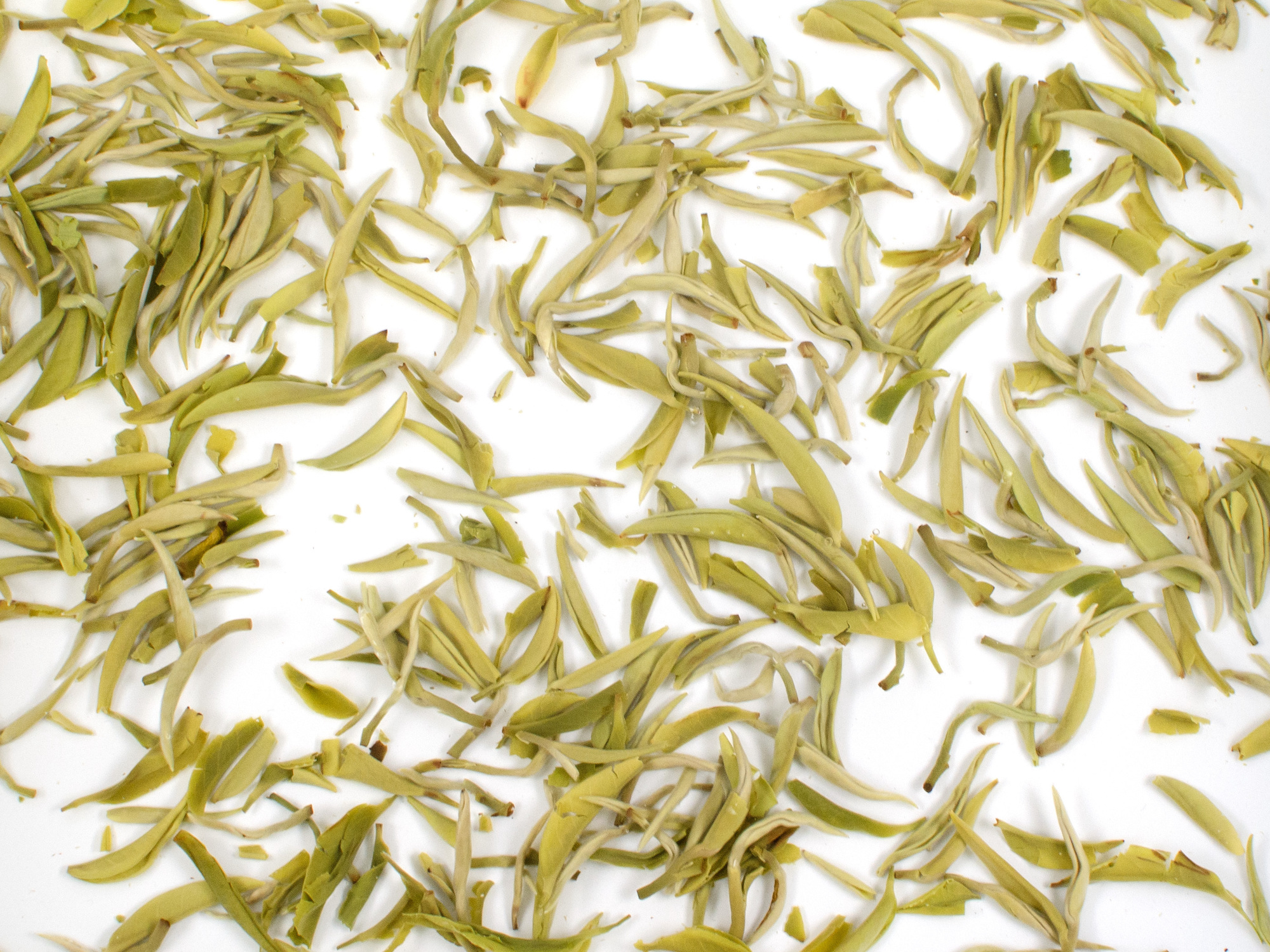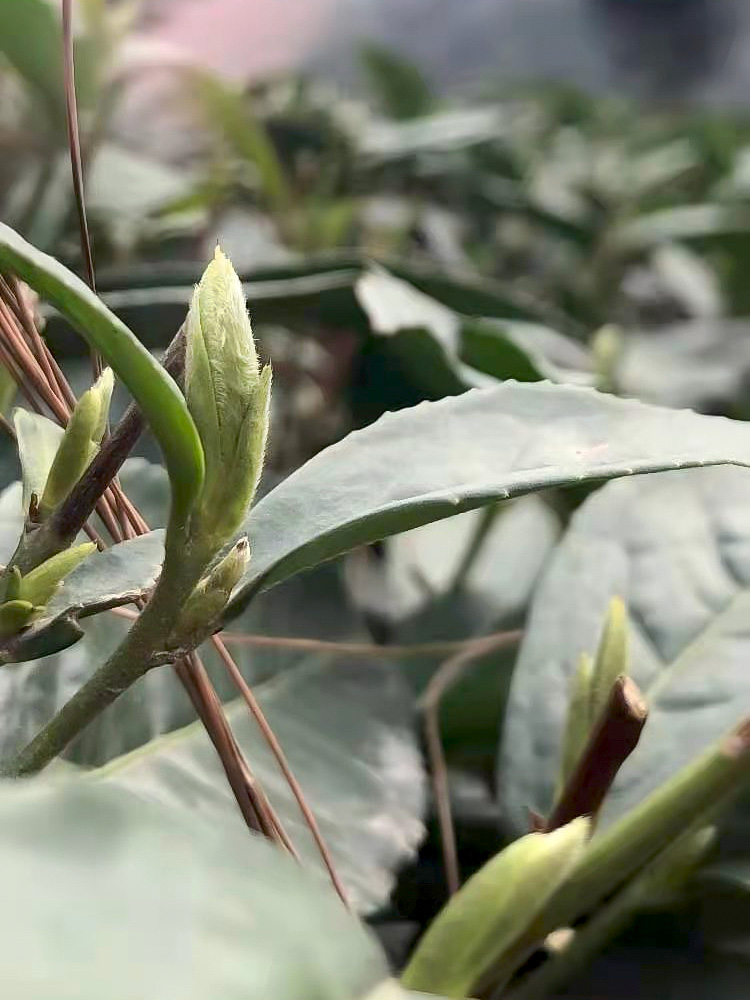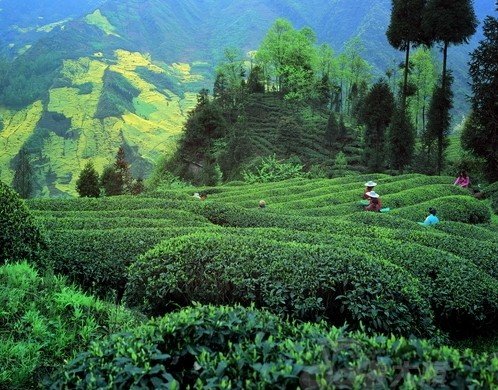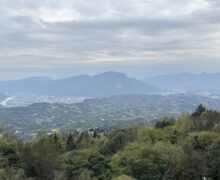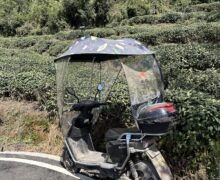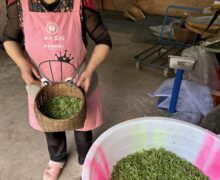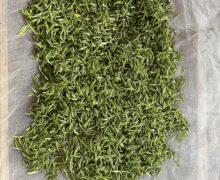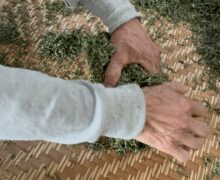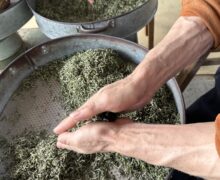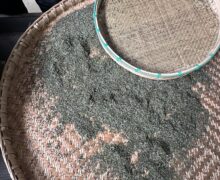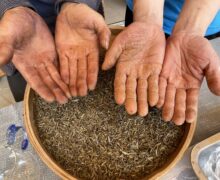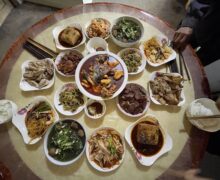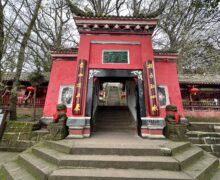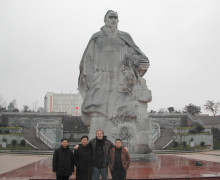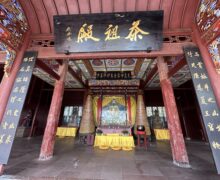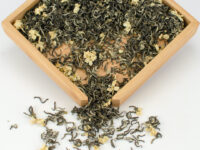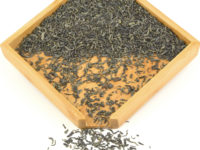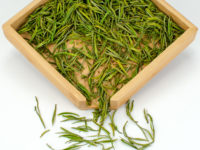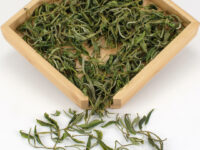Mengding Ganlu (Sweet Dew)
Green Tea 2025
A young early spring green tea that has a rich but mellow and long-lasting flavor. Sweet and full-flavored with chestnut aromas and floral accents. Made in the region of Sichuan Province where tea was first cultivated over 2000 years ago.
2025’s harvest is classic Mengding Ganlu with incredibly soft yet full flavor.
- Tea Origin
- Mengding Mountain, Ya'an City, Sichuan Province, China
- Tea Bush
- Xiao Fuding (Little Fuding), Fuding Dabai (Fuding Big White)
- Tea Maker
- Luo Ping
- Harvest Time
- Early March
- Plucking Standard
- One bud, one leaf
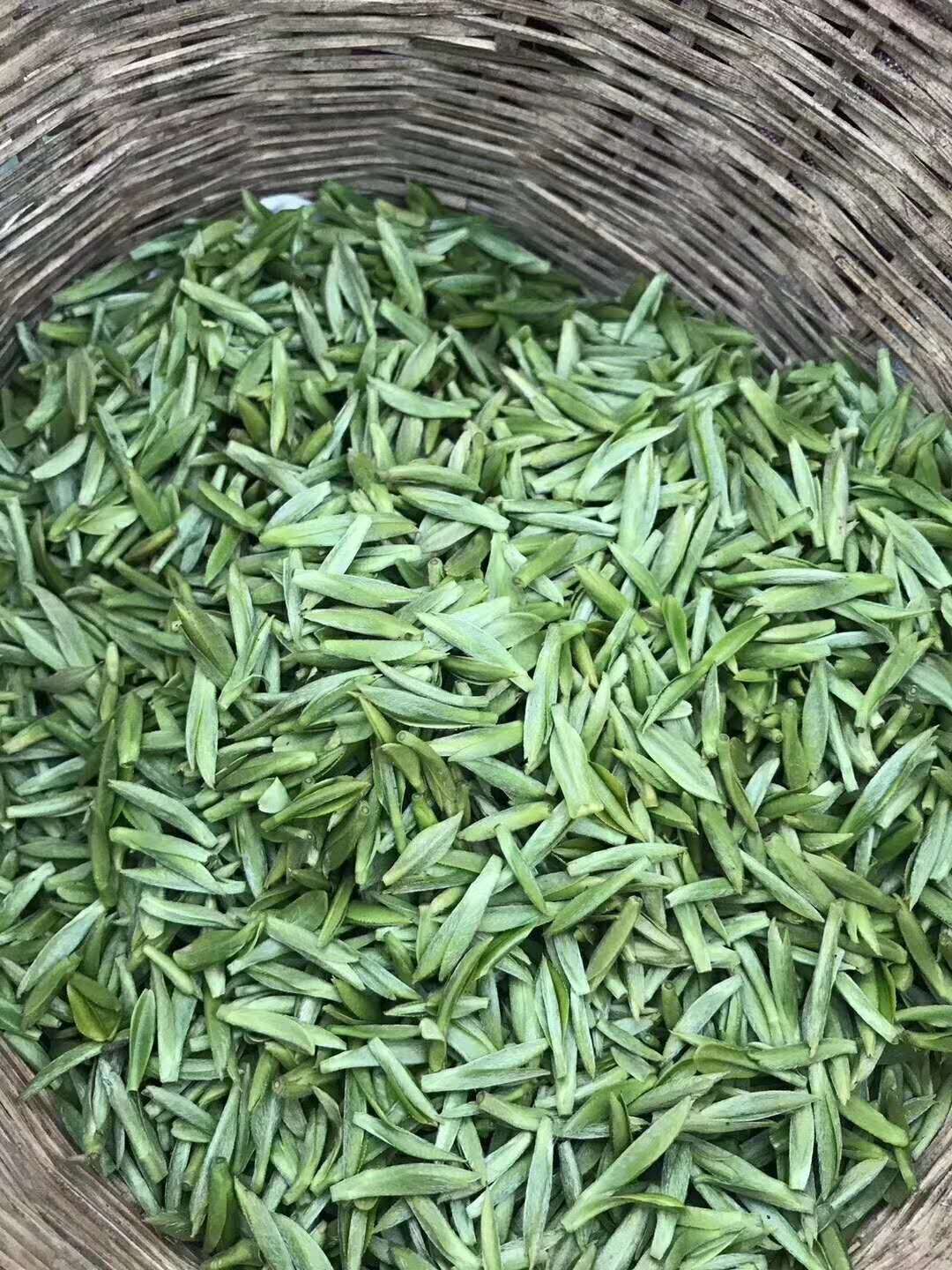
The harvest season for Mengding tea begins in March, or even as early as late February. The buds are hand-picked very early in the morning while it is still very chilly and dew is still on the grass. This tea uses mostly tender tea buds, which are then carefully hand-fried and curled during processing. While the tea buds are very tiny, the unique character of the tea bush creates a bright green tea color, fresh rich flavor and highly nutritious tea, even while using a small quantity of leaves.
History of Mengding tea
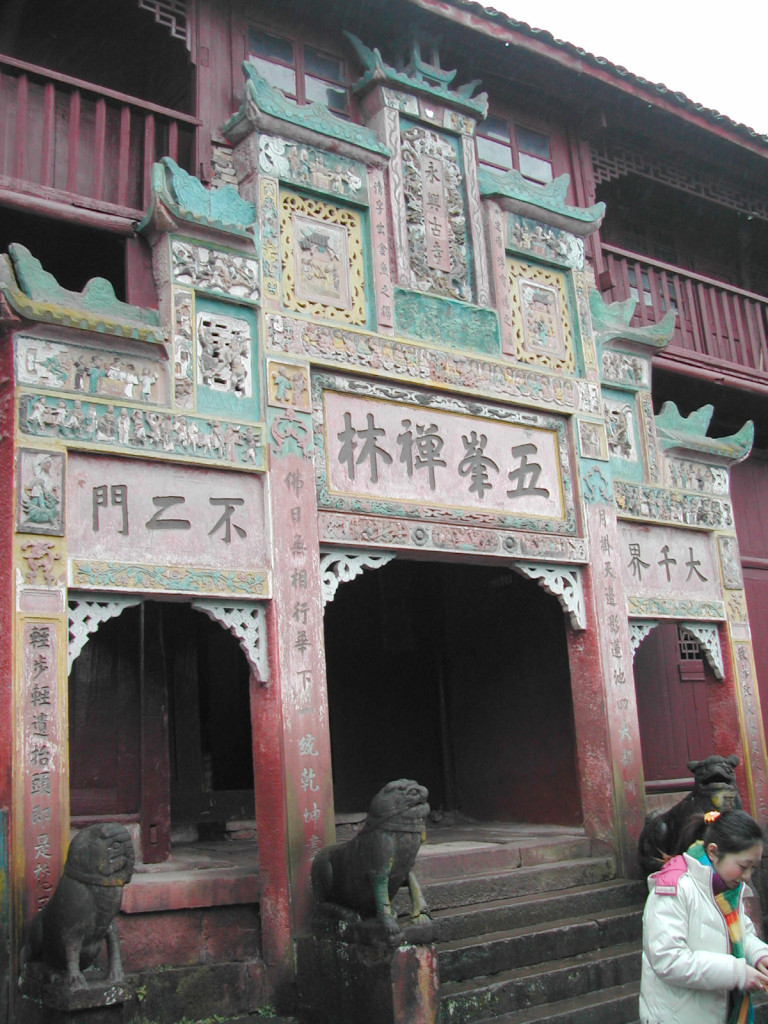
The Mengding Mountains in southwestern China are famous not only as the hometown of panda bears but also as where tea was first cultivated at Ganlu Si (Sweet Dew Temple). This tea was cultivated at this Daoist temple over two thousand years ago, hence the name Ganlu (Sweet Dew). It has been a tribute tea since the Tang Dynasty (618–907).
Beginning in the Tang dynasty, Mengding Mountain has produced many Tribute teas, such as Mengding Huangya (Yellow Buds), Shi Hua (Stone Flower), and many more. Mengding tea was considered the best tea and the best water to pair with this tea was from the center of the Yangzi (Yangtze in the Wade-Giles Romanization) river. The literati of the time all went to great lengths to obtain Mengding tea and composed numerous poems to sing the praises of Mengding tea.
Among the most famous of them are these lines:
蒙顶山上茶
扬子江中水
Tea of the Mengding Mountain’s top
Water of the Yangzi River’s center.
These lines of poetry suggest that in their time, tea was picked on top of Mt. Mengding was considered to be the best, and the best water was that which came from the Yangzi River. It is evident in this passage that the tea connoisseurs of antiquity were already insisting that good tea should also be paired with good water.
No chemical fertilizer, pesticide, or herbicide was used in the production of this tea. Click here to read more about our promise to fair trade and the environment.

